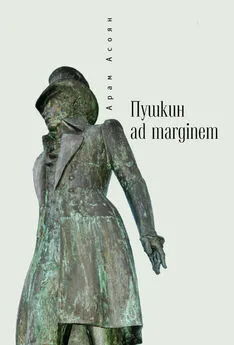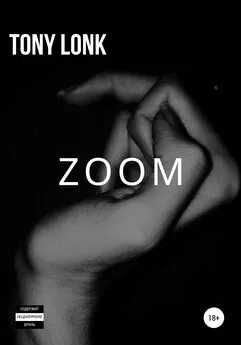Toni Morrison - Sula
- Название:Sula
- Автор:
- Жанр:
- Издательство:неизвестно
- Год:неизвестен
- ISBN:нет данных
- Рейтинг:
- Избранное:Добавить в избранное
-
Отзывы:
-
Ваша оценка:
Toni Morrison - Sula краткое содержание
Sula - читать онлайн бесплатно полную версию (весь текст целиком)
Интервал:
Закладка:
It was a longer walk than she remembered, and they saw the train steaming up just as they turned the corner. They ran along the track looking for the coach pointed out to them by the colored porter. Even at that they made a mistake. Helene and her daughter entered a coach peopled by some twenty white men and women. Rather than go back and down the three wooden steps again, Helene decided to spare herself some embarrassment and walk on through to the colored car. She carried two pieces of luggage and a string purse; her daughter carried a covered basket of food.
As they opened the door marked COLORED ONLY, they saw a white conductor coming toward them. It was a chilly day but a light skim of sweat glistened on the woman’s face as she and the little girl struggled to hold the door open, hang on to their luggage and enter all at once. The conductor let his eyes travel over the pale yellow woman and then stuck his little finger into his ear, jiggling it free of wax. “What you think you doin’, gal?”
Helene looked up at him.
So soon. So soon. She hadn’t even begun the trip back. Back to her grandmother’s house in the city where the red shutters glowed, and already she had been called “gal.” All the old vulnerabilities, all the old fears of being somehow flawed gathered in her stomach and made her hands tremble. She had heard only that one word; it dangled above her wide-brimmed hat, which had slipped, in her exertion, from its carefully leveled placement and was now tilted in a bit of a jaunt over her eye.
Thinking he wanted her tickets, she quickly dropped both the cowhide suitcase and the straw one in order to search for them in her purse. An eagerness to please and an apology for living met in her voice. “I have them. Right here somewhere, sir…”
The conductor looked at the bit of wax his fingernail had retrieved. “What was you doin’ back in there? What was you doin’ in that coach yonder?”
Helene licked her lips. “Oh…I…” Her glance moved beyond the white man’s face to the passengers seated behind him. Four or five black faces were watching, two belonging to soldiers still in their shit-colored uniforms and peaked caps. She saw their closed faces, their locked eyes, and turned for compassion to the gray eyes of the conductor.
“We made a mistake, sir. You see, there wasn’t no sign. We just got in the wrong car, that’s all. Sir.”
“We don’t ’low no mistakes on this train. Now git your butt on in there.”
He stood there staring at her until she realized that he wanted her to move aside. Pulling Nel by the arm, she pressed herself and her daughter into the foot space in front of a wooden seat. Then, for no earthly reason, at least no reason that anybody could understand, certainly no reason that Nel understood then or later, she smiled. Like a street pup that wags its tail at the very doorjamb of the butcher shop he has been kicked away from only moments before, Helene smiled. Smiled dazzlingly and coquettishly at the salmon-colored face of the conductor.
Nel looked away from the flash of pretty teeth to the other passengers. The two black soldiers, who had been watching the scene with what appeared to be indifference, now looked stricken. Behind Nel was the bright and blazing light of her mother’s smile; before her the midnight eyes of the soldiers. She saw the muscles of their faces tighten, a movement under the skin from blood to marble. No change in the expression of the eyes, but a hard wetness that veiled them as they looked at the stretch of her mother’s foolish smile.
As the door slammed on the conductor’s exit, Helene walked down the aisle to a seat. She looked about for a second to see whether any of the men would help her put the suitcases in the overhead rack. Not a man moved. Helene sat down, fussily, her back toward the men. Nel sat opposite, facing both her mother and the soldiers, neither of whom she could look at. She felt both pleased and ashamed to sense that these men, unlike her father, who worshiped his graceful, beautiful wife, were bubbling with a hatred for her mother that had not been there in the beginning but had been born with the dazzling smile. In the silence that preceded the train’s heave, she looked deeply at the folds of her mother’s dress. There in the fall of the heavy brown wool she held her eyes. She could not risk letting them travel upward for fear of seeing that the hooks and eyes in the placket of the dress had come undone and exposed the custard-colored skin underneath. She stared at the hem, wanting to believe in its weight but knowing that custard was all that it hid. If this tall, proud woman, this woman who was very particular about her friends, who slipped into church with unequaled elegance, who could quell a roustabout with a look, if she were really custard, then there was a chance that Nel was too.
It was on that train, shuffling toward Cincinnati, that she resolved to be on guard—always. She wanted to make certain that no man ever looked at her that way. That no midnight eyes or marbled flesh would ever accost her and turn her into jelly.
For two days they rode; two days of watching sleet turn to rain, turn to purple sunsets, and one night knotted on the wooden seats (their heads on folded coats), trying not to hear the snoring soldiers. When they changed trains in Birmingham for the last leg of the trip, they discovered what luxury they had been in through Kentucky and Tennessee, where the rest stops had all had colored toilets. After Birmingham there were none. Helene’s face was drawn with the need to relieve herself, and so intense was her distress she finally brought herself to speak about her problem to a black woman with four children who had got on in Tuscaloosa.
“Is there somewhere we can go to use the restroom?”
The woman looked up at her and seemed not to understand. “Ma’am?” Her eyes fastened on the thick velvet collar, the fair skin, the high-tone voice.
“The restroom,” Helene repeated. Then, in a whisper, “The toilet.”
The woman pointed out the window and said, “Yes, ma’am. Yonder.”
Helene looked out of the window halfway expecting to see a comfort station in the distance; instead she saw gray-green trees leaning over tangled grass. “Where?”
“Yonder,” the woman said. “Meridian. We be pullin’ in direc’lin.” Then she smiled sympathetically and asked, “Kin you make it?”
Helene nodded and went back to her seat trying to think of other things—for the surest way to have an accident would be to remember her full bladder.
At Meridian the women got out with their children. While Helene looked about the tiny stationhouse for a door that said COLORED WOMEN, the other woman stalked off to a field of high grass on the far side of the track. Some white men were leaning on the railing in front of the stationhouse. It was not only their tongues curling around toothpicks that kept Helene from asking information of them. She looked around for the other woman and, seeing just the top of her head rag in the grass, slowly realized where “yonder” was. All of them, the fat woman and her four children, three boys and a girl, Helene and her daughter, squatted there in the four o’clock Meridian sun. They did it again in Ellisville, again in Hattiesburg, and by the time they reached Slidell, not too far from Lake Pontchartrain, Helene could not only fold leaves as well as the fat woman, she never felt a stir as she passed the muddy eyes of the men who stood like wrecked Dorics under the station roofs of those towns.
The lift in spirit that such an accomplishment produced in her quickly disappeared when the train finally pulled into New Orleans.
Cecile Sabat’s house leaned between two others just like it on Elysian Fields. A Frenchified shotgun house, it sported a magnificent garden in the back and a tiny wrought-iron fence in the front. On the door hung a black crepe wreath with purple ribbon. They were too late. Helene reached up to touch the ribbon, hesitated, and knocked. A man in a collarless shirt opened the door. Helene identified herself and he said he was Henri Martin and that he was there for the settin’-up. They stepped into the house. The Virgin Mary clasped her hands in front of her neck three times in the front room and once in the bedroom where Cecile’s body lay. The old woman had died without seeing or blessing her granddaughter.
No one other than Mr. Martin seemed to be in the house, but a sweet odor as of gardenias told them that someone else had been. Blotting her lashes with a white handkerchief, Helene walked through the kitchen to the back bedroom where she had slept for sixteen years. Nel trotted along behind, enchanted with the smell, the candles and the strangeness. When Helene bent to loosen the ribbons of Nel’s hat, a woman in a yellow dress came out of the garden and onto the back porch that opened into the bedroom. The two women looked at each other. There was no recognition in the eyes of either. Then Helene said, “This is your…grandmother, Nel.” Nel looked at her mother and then quickly back at the door they had just come out of.
“No. That was your great-grandmother. This is your grandmother. My…mother.”
Before the child could think, her words were hanging in the gardenia air. “But she looks so young.”
The woman in the canary-yellow dress laughed and said she was forty-eight, “an old forty-eight.”
Then it was she who carried the gardenia smell. This tiny woman with the softness and glare of a canary. In that somber house that held four Virgin Marys, where death sighed in every corner and candles sputtered, the gardenia smell and canary-yellow dress emphasized the funeral atmosphere surrounding them.
The woman smiled, glanced in the mirror and said, throwing her voice toward Helene, “That your only one?”
“Yes,” said Helene.
“Pretty. A lot like you.”
“Yes. Well. She’s ten now.”
“Ten? Vrai? Small for her age, no?”
Helene shrugged and looked at her daughter’s questioning eyes. The woman in the yellow dress leaned forward. “Come. Come, chere.”
Helene interrupted. “We have to get cleaned up. We been three days on the train with no chance to wash or…”
“Comment t’appelle?”
“She doesn’t talk Creole.”
“Then you ask her.”
“She wants to know your name, honey.”
With her head pressed into her mother’s heavy brown dress, Nel told her and then asked, “What’s yours?”
“Mine’s Rochelle. Well. I must be going on.” She moved closer to the mirror and stood there sweeping hair up from her neck back into its halo-like roll, and wetting with spit the ringlets that fell over her ears. “I been here, you know, most of the day. She pass on yesterday. The funeral tomorrow. Henri takin’ care.” She struck a match, blew it out and darkened her eyebrows with the burnt head. All the while Helene and Nel watched her. The one in a rage at the folded leaves she had endured, the wooden benches she had slept on, all to miss seeing her grandmother and seeing instead that painted canary who never said a word of greeting or affection or…
Rochelle continued. “I don’t know what happen to de house. Long time paid for. You be thinkin’ on it? Oui?” Her newly darkened eyebrows queried Helene.
“Oui.” Helene’s voice was chilly. “I be thinkin’ on it.”
“Oh, well. Not for me to say…”
Suddenly she swept around and hugged Nel—a quick embrace tighter and harder than one would have imagined her thin soft arms capable of.
“’Voir! ’Voir!” and she was gone.
In the kitchen, being soaped head to toe by her mother, Nel ventured an observation. “She smelled so nice. And her skin was so soft.”
Читать дальшеИнтервал:
Закладка:








